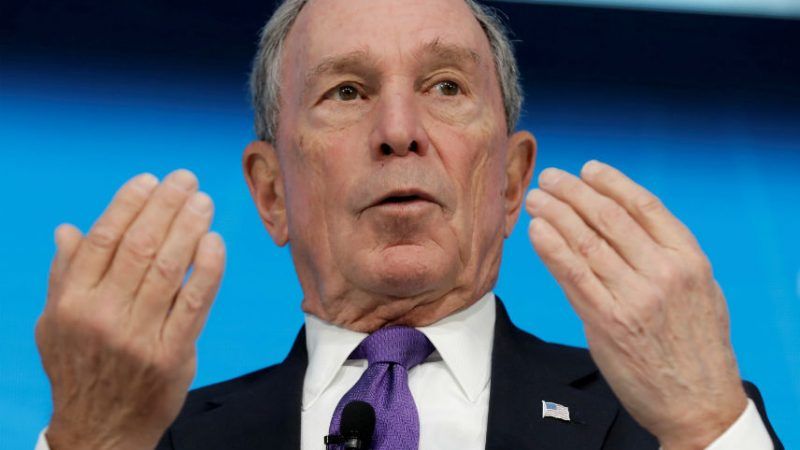Michael Bloomberg's Chances of Becoming President: Slim, None, and Fat
The latest trial balloon from the perennial White House Hamlet contains more lead than the paint of a New York public school.


Michael Bloomberg wakes at 5 a.m. (while Bill de Blasio is busy sawing logs at Gracie Mansion), showers, shaves, slaps some Aqua Velva on his face, points tiny finger pistols at the mirror, and says, "What America needs right now to get out of this Trump mess is another unpleasant septuagenarian businessman from New York!"
No, really. The former New York mayor and longtime business-news tycoon is once again, at the spry age of 76, aggressively floating his name in connection with a presidential run that likely won't come close to the starting line. This time not as an unrealistic independent (as in 2007 and 2016), but as a member of the party he joined all of one month ago: the Democrats.
"Thanksgiving, Christmas, and then maybe a few weeks into January—that's when you really gotta sit down, talk to your advisers, and say, 'Look, do I have a chance?'" Bloomberg mused this week to the Associated Press. "I think I know why I would want to run. I think I know what I think this country should do and what I would do. But I just don't know whether it's possible."
Let me save the man a few months: It's not possible.
I say this not because Bloomberg is terrible on things libertarians care about—like eminent domain, surveillance, nanny-state soda bans, sin taxes, vaping, the Constitution, and a general do-something ideology that perennially fails to admit that it's an ideology. No, I'm saying this because the things the left disagrees with him about are deal-breakers, and the things they like would make him unsaleable to the rest of the country.
Take stop-and-frisk. Bloomberg served out his third term as mayor at the end of 2013. The street protests in Ferguson, Missouri, happened in the summer of 2014. Since then, mostly for the good, Democrats have become a party with little patience for constitutionally dubious tough-on-crime policies that explicitly target poor and minority communities. To this day, Bloomberg erroneously credits this poverty-checkpoint policy with reducing crime.
The former mayor is also an outspoken advocate for something far more libertarian-friendly: school reform. But on the national level especially, the Democrats have rejected Barack Obama's reform-curiosity for a more retrograde universal-pre-K, pay-all-the-teachers-more, charter-schools-are-bad rigidity.
The main issue on which Bloomberg and progressives passionately agree is precisely the one no national candidate in modern times has ever been able to run on successfully: gun control. Firearms, and the right to own them, remain stubbornly popular in America, and strenuous, city-slicker opposition to them constitute political no-fly zones throughout large swaths of the country. And Democrat criminal justice reformers are beginning to draw the direct line between gun control policies like stop-and-frisk and the kind of racial profiling/condescension they abhor.
I suspect the biggest reason Bloomberg 2020 will soon be declared dead on arrival is related to this succinct Jesse Walker observation from 2016: "More than anyone else in public life today, Bloomberg embodies the idea of managerial control." There may be plenty of managerial tendencies among Democrats and the politicians they support. But in an era when consumers are voting on the way candidates make them feel, the white-hot center of left-bent passion seems to be more about the vigorous, post-Boomer Benetton uplift of Beto O'Rourke and Barack Obama rather than the crabby competence of yet another New York asshole.


Show Comments (56)